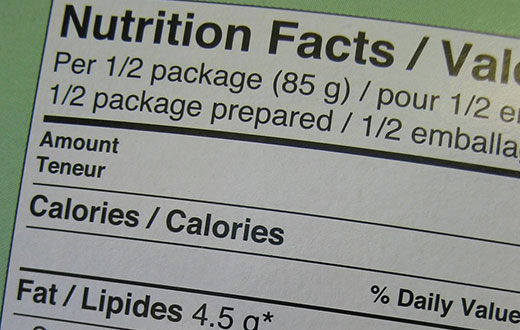
The Kansas Value Added Foods Lab is staying busy during the current pandemic evaluating foods for safety, nutrition and compliance with federal regulations.
K-State lab continues work to help assure safety of U.S. foods
Group’s leader says they are receiving 100 requests per month despite pandemic
April 17, 2020
MANHATTAN, Kan. – Even in uncertain times, one constant is that people must eat, which means that food companies will continue to produce and develop products.
That’s likely why Fadi Aramouni stays as busy as ever. As director of the Kansas Value Added Foods Lab at Kansas State University, Aramouni says his lab’s phone continues to ring even as the rest of the Manhattan campus is on a limited operations status during the country’s current outbreak of the novel coronavirus.
“We’re still receiving the same number of requests for our service, about 100 per month,” Aramouni said.
The lab provides scientific backing for food processing companies who are developing new products. Aramouni says his staff, which normally includes 13 people but has been reduced to three during the current pandemic, can help companies validate food safety, nutrition labeling and compliance with federal regulations.
“The staff in my lab will perform the chemical, physical, microbiological or sensory analyses on hundreds of food products,” Aramouni said. “Then, we generate the corresponding reports for the safety of foods, ingredients legends and Nutrition Facts panels that consumers see on food labels.”
According to Aramouni, food labeling is done in addition to a safety assessment known as ‘Process Authority’ that is recognized by the U.S. Food and Drug Administration and the Kansas Department of Agriculture, which supports the program with annual grants to lower the cost of the lab’s tests.
Staff in the lab, he noted, test food for acidity, water activity, microbiological profile and incubation to assure its safety. They also measure serving sizes, servings per container, moisture content, and soluble sugars and sodium.
“We may also test for gluten, protein and fat contents,” Aramouni said.
Their work, he notes, is an often unseen part of food production, yet an important step in making sure that the foods that hit consumer’s tables have been held to the highest standards of quality and safety.
“It’s important for consumers because the work we do allows them to stay informed about the contribution of nutrients to the foods they are eating, as well as allergens that could negatively affect them and their families,” Aramouni said.
Aramouni said his team also is responsible for testing foods sold at Kansas Farmers’ Markets that are not exempt from the state’s licensing regulations.
“This includes products like pickles, low sugar jams and jellies, pies, desserts with icings, and fermented foods,” he said. “We also test sauces and dressings used by restaurants if they are kept on consumer’s tables without refrigeration to decide whether they are ‘Potentially Hazardous Foods,’ or PHF.”
When K-State announced it was limiting campus operations, it meant that many of Aramouni’s regular staff members were not able to return to work. Currently, the lab has just three employees working: Ararmouni and lab managers Samantha Fischer and Megan Weathers, both of whom are undergraduate students.
“We are having to work a lot harder to keep up,” he said.
Learn more about the work being done in the Kansas Value Added Foods lab online.

